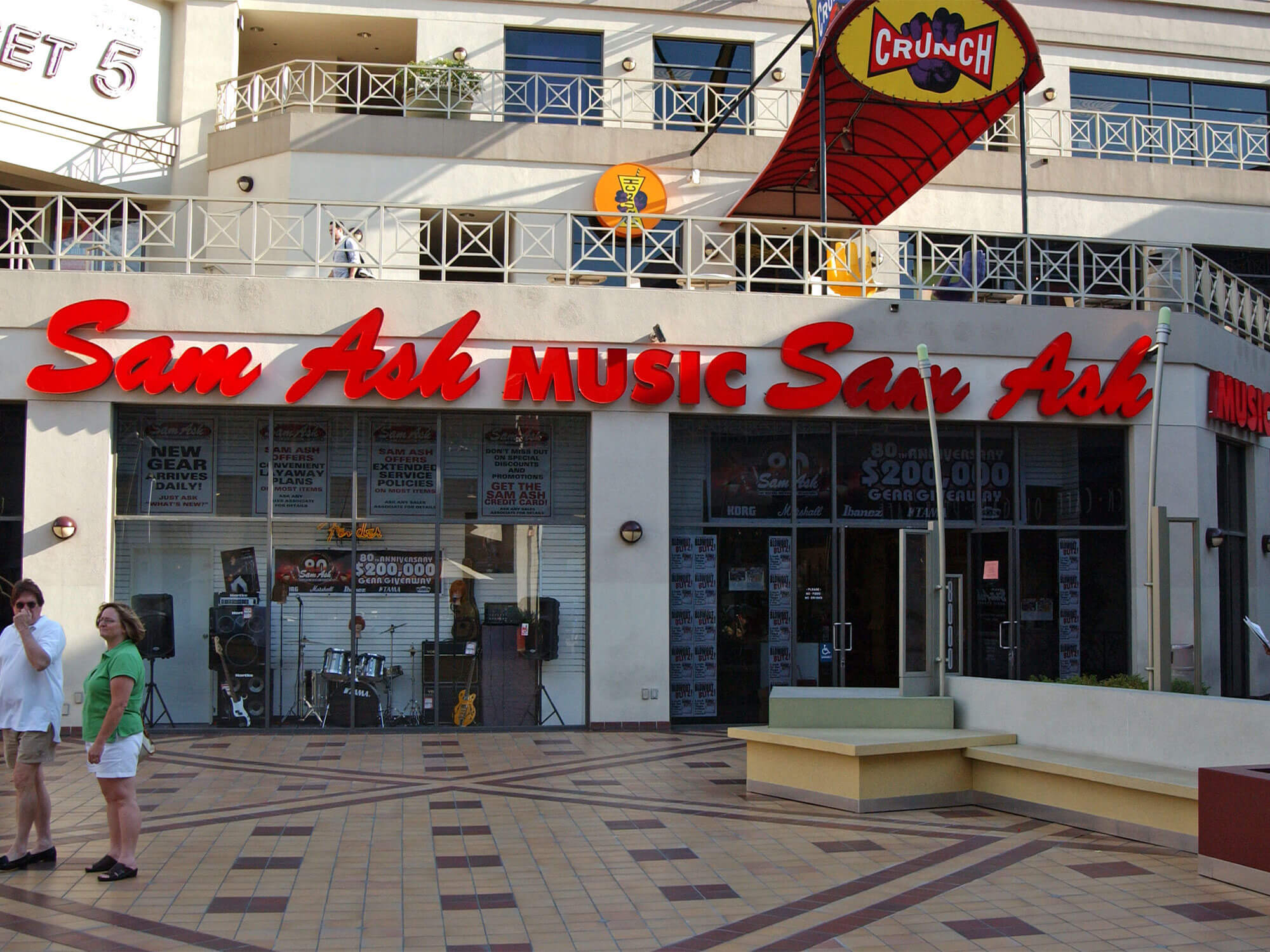Sam Ash’s assets to be auctioned off following bankruptcy filing – with assets valued at $100-$500m
A “stalking horse” bidder has already confirmed a purchase agreement unless the auction leads to a better offer.

Image: Bauer-Griffin / Getty
Following on from Sam Ash’s closure of all locations, the retailer has filed for chapter 11 bankruptcy, and established the procedure for auctioning off its assets. Notably, a “stalking horse bidder” has also been established – this party will purchase the business as a whole unless the auction leads to a better offer.
Amidst heavy competition from online retailers, Sam Ash announced the closure of all of its retail locations – and its closing-down sale – on 2 May. Shortly afterwards, on 8 May, Sam Ash filed for chapter 11 bankruptcy, stating that both its estimated assets and its estimated liabilities to be between $100 million and $500 million. Its assets include 42 stores and four distribution centres.
Since this bankruptcy filing, Sam Ash has now also filed to establish a procedure for auctioning off its assets. The proposed bidding and sale process aims to be “expeditious, public and flexible,” and allows for different segments of the business as a whole – such as the retail and manufacturing/distributing sides of things – to be purchased separately by different buyers.
Additionally, the proposal includes a “stalking horse” bidder – this unnamed party has effectively agreed to set a minimum bid price for the assets, and will purchase the entire business unless the auction leads to “higher or otherwise better” offers. Subject to court approval and any objections filed, the auction date is set for late June 2024. The details of the pre-agreed “stalking horse” sale are private, for now at least.
Following the closure of Sam Ash, Music Trades editor Brian T. Majeski reflected on the changing music retail landscape, which has been irrevocably shaken by the presence of online-focused stores such as Sweetwater. His letter emphasised how much the costs of operating physical storefronts can strain brick-and-mortar music locations, in comparison to the relative efficiency of running a mainly online – but still country-wide – business.
“Sales-per-employee for the typical online music retailer is over $700,000, versus $220,000 for brick and mortar,” Majeski wrote. “Industry leader Sweetwater generates revenue out of two distribution centres that rival what Guitar Center produces from over 300 stores.”
